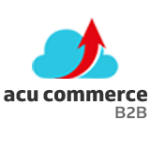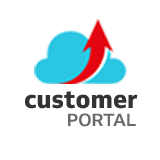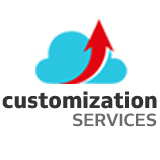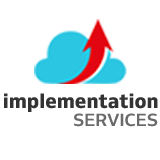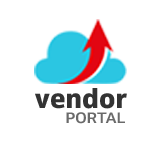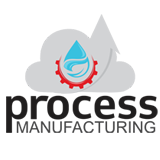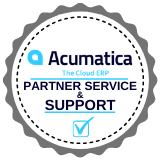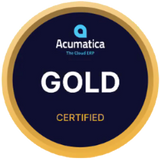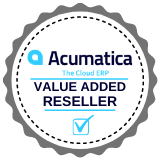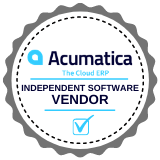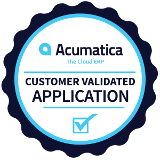Process Manufacturing refers to a production method that requires formulas or recipes for batch manufacturing goods in bulk.
Products or co-products are manufactured by transforming the raw materials from suppliers. Also, these are ingredients/components formed according to predefined formulas or recipes. The production process can also be an input item, intermediate, or bulk product received from another production. Hence, there is also a requirement for multi-level production in many scenarios.
Process industries may also require Mixed Production mode. Here, the bulk intermediate after its made goes through an assembly process like in discrete manufacturing for packaging. For example, the bulk food or chemical may require a recipe or a formula, and the packaging of that bulk in bottles or cases will require a bill of material as in discrete manufacturing – Bottle of strawberry jam is a discrete item, but the strawberry jam is process manufactured.
This production method is used particularly in industries like the food and beverage, chemical, pharmaceutical, nutraceuticals, biotechnology, cannabis, O&G, and plastics industries.
The bulk manufacturing of goods necessitates chemical or thermal conversion in most cases. The manufacturing process frequently requires a thermal or chemical transition, such as heat, duration, or force. Therefore, one cannot transform back a product made via manufacturing process management software into its individual components.
Best ERP for Process Manufacturing
ERP (Enterprise Resource Planning) refers to software systems that plan, manage, and connect several business operations across an organization. Process manufacturers must explore any instrument that can give their companies a competitive edge as globalization continues to pressurize the market for numerous industries. Surprisingly, Cloud ERP by Acumatica can accomplish this.
Top Best Software for ERP Mid-Market Businesses
- Acumatica
- MYOB
- Oracle NetSuite
- Sage
- Microsoft Dynamics 365
3 Signs Your Food and Beverage Manufacturing Business Needs Digital Transformation
The whole production process has several components, each of which must be kept in good working order. Above all, the key is to improve your software for production.
- Increased Product Wastage: When you’re wasting a lot of raw materials, it’s time to upgrade the manufacturing procedures you currently follow.
- Inconsistency in Production: You may minimise any form of consistency issue by investing in the correct processing equipment or workflow.
- Equipment Failure: If your manufacturing processing system has failed or malfunctioned, it’s best to take a second look at the details of maintenance.
Process Manufacturing ERP
In the case of chemicals and similar businesses that operate on a batch basis, there is a need for an ERP system that can simplify business activities.
For this purpose, ACU Process Manufacturing for Acumatica helps recipe or formula-based manufacturers properly handle the diversity and intricacies of their goods and processes.
Also, companies can use manufacturing ERP software consulting services to identify business problems and their causes. Additionally, they can find/design suitable software solutions, implement them efficiently, and maintain them tuned and updated in the post-deployment period.
Food and Beverage Manufacturing
The food and beverage industry is vast, complex, and replete with specialized equipment. Also, the industry has a lot of room for expansion.
The manufacturing industry is continually looking for innovative methods like the best manufacturing software to produce goods that consumers want at the lowest possible price. In particular, it’s through new innovative product formulas or higher-volume productions, lower-cost substitute ingredients, and also efficient production procedures.
ERP software for process manufacturers like Food & Beverage, Chemical, Pharmaceutical, Nutraceuticals, Personal Care
For manufacturers looking to develop and enhance their operations, ERP software is an ideal solution and will also be the first step you take towards the Digital transformation of your business. A manufacturing plant may quickly add strong operations like batch manufacturing, quality control, costing, and inventory control, distribution capabilities since these are embedded functionality in any of the best ERP software for manufacturing.
For food businesses looking to develop and enhance their operations, ERP software is an ideal solution. A food factory may quickly add strong operations like batch manufacturing, costing, and inventory control to the software they already use using embedded functionality in the best ERP software for manufacturing.
Cloud-based ERP systems for manufacturing
Cloud manufacturing ERP software is the primary choice and is becoming increasingly popular among businesses with complex manufacturing processes. Cloud ERP’s access to enable access at any time and from any location is advantageous to businesses and supports remote loggings.
Acu Process Manufacturing (APM), an Acumatica and MYOB module, is tailored to meet the end-to-end demands of companies. APM is the top ERP for process manufacturing. Hence, it combines manufacturing operations, quality control, compliance, inventory control, and finance.
Top 10 ERP software for the manufacturing
- Acumatica is a leading cloud ERP solution for manufacturing that automates and streamlines all aspects of your organisation with time-saving tools.
- Deacom has developed an ERP system, especially for food manufacturers with complicated and demanding requirements.
- ProcessPro provides a comprehensive end-to-end solution that allows producers better control and access to data.
- Plex software functions and fosters the collaboration that leads to success.
- Datacor ERP is a realistic solution for chemical wholesalers and process manufacturers.
- Sage delivers powerful and versatile software solutions for any degree of ERP performance a company requires.
- IFS Applications 10.0 is the most recent version of their product line, which provides manufacturers with a nimble, data-focused approach.
- Ross ERP by Aptean meets food and beverage process production and has several special requirements.
- Enterprise IQ by IQMS combines ERP and MES, providing several options to track and smooth production and distribution operations.
- SYSPRO develops simple, ROI-driven solutions at every stage of the development and manufacturing cycle.
How to choose Cloud-based Manufacturing Software for Small or Medium Businesses?
At least become familiar with the fundamentals of ERP before choosing an ERP to integrate into your organisation.
Additionally, when looking for an ERP solution, make sure to choose one that properly aligns with your company’s goals and needs. For this, you must first determine your business objectives and goals expected from the software before installing manufacturing production software.
For instance, the simplest approach is to opt for a detailed demo with the vendor.
Why is Cloud ERP the Future of ERP?
With Cloud-based ERP systems, we’ve noticed a new paradigmatic shift. Clients expect that the cloud-based manufacturing software for small or medium businesses offers the same ease of use and flexibility and can integrate data from multiple applications.
Clients demand real-time data analysis via inquiries, reports, or dashboard views that are easy to use and configure and that provide them with critical, relevant information with just one click.
Acumatica’s ERP platform delivers all the capabilities of legacy, and on-premises systems, with the bonus of contemporary, high ease of use screens and navigations that can accommodate current expectations. With each new iteration, the platform improves with Machine learning And Artificial intelligence.
Here is how you can improve your production management using ERP
Manufacturing ERP software can assist your company in becoming more effective and efficient. These pointers can help you get the most out of your system and increase your productivity.
- Evaluate your present position
To improve efficiency, you must first establish whether your present staff, methods, equipment, and software are reaching your goals.
- Plan for customers’ needs
If you use an ERP system in your company, the software can trigger notifications or alerts for changes in client demand or internal action items. Additionally, it depends on both historical and real-time data.
- Boost workplace productivity
Nevertheless, labor costs are higher for companies that still use manual processes to conduct their manufacturing operations in contrast to companies that automate their processes via production management software.
Bottom line
These are just a few pointers to assist you in increasing the efficiency of your business. Above anything, if you’re using the right ERP system, you’ll be able to collect the data you need to assess, monitor, and evaluate your effective efforts to improve efficiency.

Vijay comes with a vast experience in ERP and enterprise solutions space with about 20 years of experience in various packaged application like Acumatica, SAP, Orion, Salesforce.com, SugarCRM and, SalesLogix.

